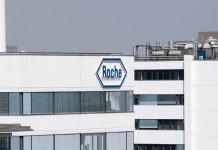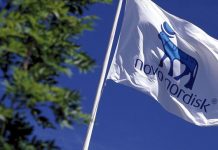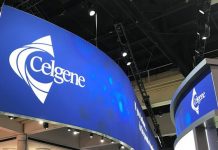The cancer field’s largest conference has come and gone, and with it a window into the thousands of clinical trials being run in hopes of finding oncology’s next advance.
This year’s iteration of the American Society of Clinical Oncology’s annual meeting may have been quieter — Merck & Co. and Bristol-Myers Squibb skipped out on holding their regular investor briefings — yet still showcased the breadth of investment from biotech and pharmaceutical companies into new cancer drugs.
Miss the conference? Here are three takeaways from ASCO this year.
For a gene thought “undruggable,” investors now think biotech can go two for two
Advances in targeted cancer therapy have made treatable dozens of genetic mutations known to drive tumor growth. Yet one, a gene known as KRAS, has stayed consistently out of reach despite being among the most common.
KRAS’ fingerprints can be found in about a third of lung cancers, two-fifths of colorectal cancers and as many as 90% of pancreatic tumors.
Past efforts to combat the aberrant cell signaling caused by mutated KRAS have largely failed. But results from less than a dozen lung cancer patients treated with an early-stage Amgen drug have excited oncologists, showing hints that the biotech may have found a way to drug the “undruggable.”
Interestingly, after decades of setbacks, biotech investors now seem to think industry can go two for two. Amgen’s update spurred shares in Mirati Therapeutics, which is developing a similar KRAS inhibitor, to surge sharply higher.
Results from Mirati’s study are due later this year, and will help determine whether the KRAS code has really been cracked.
Accelerated approvals are a key part of cancer drugmakers’ plans
By early March, just over 80 people with cancers harboring one of three specific genes had received treatment with repotrectinib, a drug designed by biotech company Turning Point Therapeutics to interfere with enzymes produced by those genes.
Initial results from a handful of those patients, updated at ASCO, show reportectinib can shrink tumors. Now, Turning Point plans to move the drug into a second-stage of clinical testing it hopes can support U.S. approval.
It’s one of a slate of new targeted cancer therapies moving quickly through development. Increasingly, the biotechs developing these drugs aim to secure conditional clearance from the Food and Drug Administration with efficacy data from just dozens of patients.
Turning Point, for example, takes encouragement from Loxo Oncology, which won an OK last year for its targeted drug Vitrakvi with response rate results across just 55 patients.
By targeting treatment to specific genetic drivers of disease, biotechs like Turning Point and Loxo can demonstrate impressive efficacy with much smaller studies than would be needed for more broadly defined tumor types.
As as result, accelerated approval has become a foundation of companies’ regulatory strategies. Data presented at ASCO for drugs in development by Blueprint Medicine, Novartis (by way of Incyte) and Seattle Genetics could enable their makers to seek speedy OKs.
So far, such approaches have worked. Over the past four years, 17 of the 22 treatments granted an early, conditional OK by the agency were cancer treatments.
Such speed has brought criticism, especially with a recent study finding many accelerated approvals aren’t subsequently supported with data showing an improvement in overall survival.
Yet the high response rates seen with this newer generation of targeted drugs makes it difficult to wait for longer-term data, or to compare against drugs known to be less effective, said Alice Shaw, director of thoracic oncology at Massachusetts General Hospital in Boston, in an interview.
Immunotherapy’s benefit now clearer
Many people with cancer don’t respond to treatment with immunotherapy. Those who do, however, have a shot at experiencing a lasting benefit.
Merck & Co.’s Keytruda and Bristol-Myers Squibb’s Opdivo, the two most commonly used checkpoint blockers, were approved in the U.S. in late 2014. Now, nearly five years on, results presented at this year’s ASCO give doctors a better sense of how well the drugs perform over time.
Nearly one fifth of advanced lung cancer patients treated with Keytruda in an early study of the therapy were alive at five years, data from Merck showed. While that leaves plenty of room for improvement, it’s quadruple the five-year survival rate — about 5% — for metastatic disease prior to immunotherapy.
The finding “completely changes our mindset” when treating lung cancer, said David Graham, medical director at the Levine Cancer Institute in Charlotte, North Carolina, in a briefing with reporters.
Bristol-Myers, meanwhile, presented data from a Phase 1 study of Opdivo plus Yervoy, its other cancer immunotherapy, in previously treated or untreated metastatic melanoma. With a median follow-up of just under four years, the survival rate was 57%.








